Website: catrinahacker.com
Learn about the amazing scientific, mentoring, and community-building contributions made by friends selected around the world 🧠🌍 www.thetransmitter.org/early-career...

Learn about the amazing scientific, mentoring, and community-building contributions made by friends selected around the world 🧠🌍 www.thetransmitter.org/early-career...
There, he'll tell you about a pardox and its resolution - along with a previously undescribed computation in the medial temporal lobe.

There, he'll tell you about a pardox and its resolution - along with a previously undescribed computation in the medial temporal lobe.
#neuroskyence #SFN2025
Don't miss this terrific #SFN2025 nanosymposium that she & @lizsiefert.bsky.social have organized around that idea! (Sun, 8a).

#neuroskyence #SFN2025
This week @pennngg.bsky.social student Nita Rome unpacks the history behind these concerns and how modern studies have debunked this misconception.
pennneuroknow.com/2025/11/11/v...
#PsychSciSky #SciComm 🧠🟦🧪

This week @pennngg.bsky.social student Nita Rome unpacks the history behind these concerns and how modern studies have debunked this misconception.
pennneuroknow.com/2025/11/11/v...
#PsychSciSky #SciComm 🧠🟦🧪
#neuroskyence
bit.ly/47MXYLH
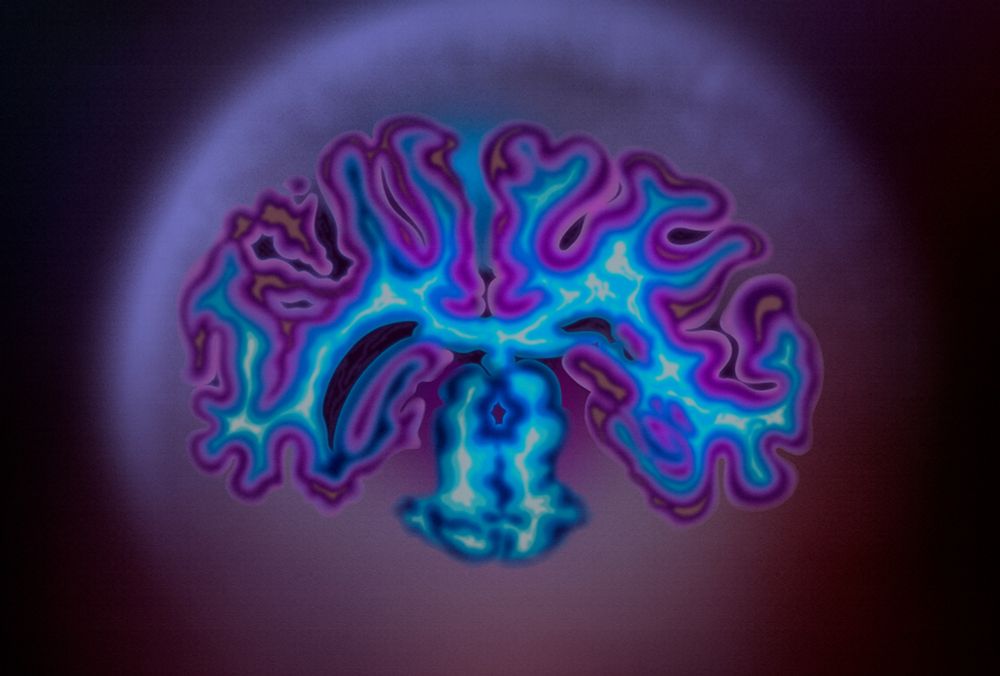
#neuroskyence
bit.ly/47MXYLH
go.nature.com/47zrzYZ

go.nature.com/47zrzYZ




We're looking into a jet of plasma shooting out from a supermassive black hole, called PKS 1424+240. The lines depict intense magnetic fields threaded through the jet. 🧪🔭
www.mpg.de/25171297/eye...

We're looking into a jet of plasma shooting out from a supermassive black hole, called PKS 1424+240. The lines depict intense magnetic fields threaded through the jet. 🧪🔭
www.mpg.de/25171297/eye...
www.biorxiv.org/content/10.1...

www.biorxiv.org/content/10.1...
Stop by B121 this afternoon to see our investigation of the neural representations in spikes and field potentials and our surprising result that sometimes field potentials are better!
2025.ccneuro.org/poster/?id=t...
🧠📈
Stop by B121 this afternoon to see our investigation of the neural representations in spikes and field potentials and our surprising result that sometimes field potentials are better!
2025.ccneuro.org/poster/?id=t...
🧠📈
Co-editor @catrinahacker.bsky.social explores in this week's post: pennneuroknow.com/2025/08/05/t...
#PsychSciSky #SciComm 🧠🟦 🧪 📖

Co-editor @catrinahacker.bsky.social explores in this week's post: pennneuroknow.com/2025/08/05/t...
#PsychSciSky #SciComm 🧠🟦 🧪 📖
We have until Aug 15 to spend out the budget. CAL CONGRESS AND DEMAND THE HOLD BE LIFTED. Lives are on the line 🧪
*
We have until Aug 15 to spend out the budget. CAL CONGRESS AND DEMAND THE HOLD BE LIFTED. Lives are on the line 🧪
*
After years, this reflects the answer I was looking for. Congrats to Simon Bohn et al.
www.biorxiv.org/content/10.1...
More: /1
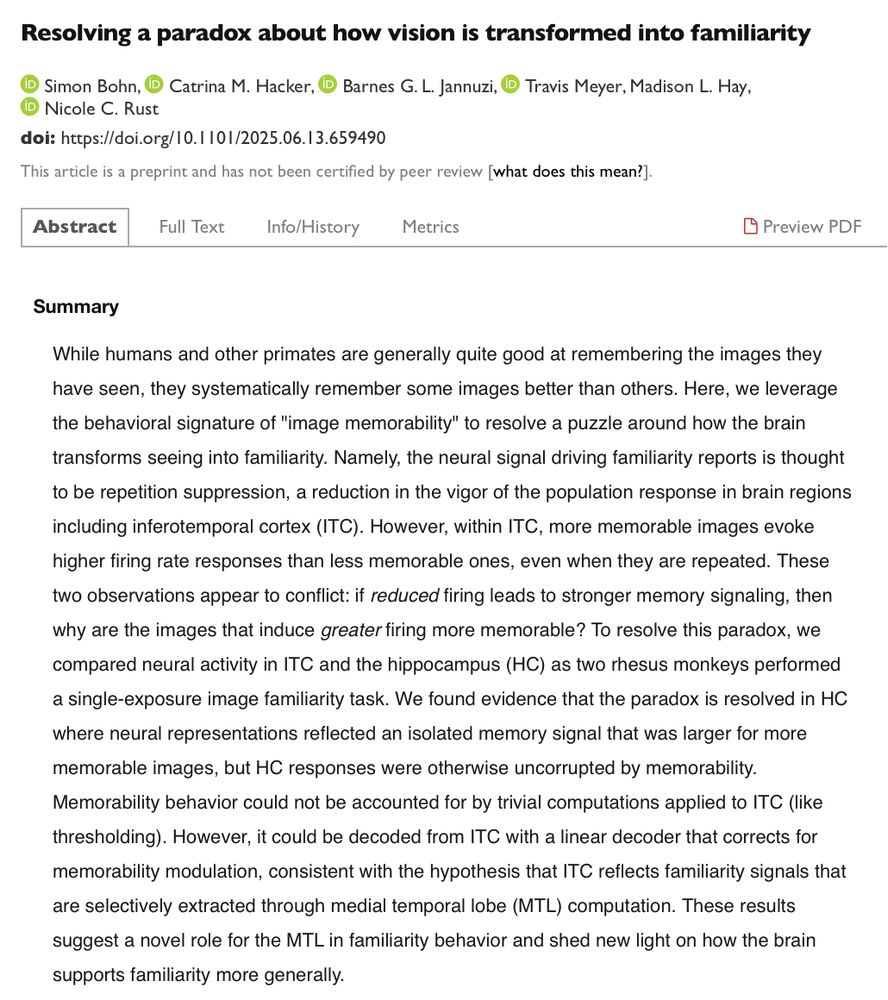
After years, this reflects the answer I was looking for. Congrats to Simon Bohn et al.
www.biorxiv.org/content/10.1...
More: /1
When a chickadee looks at a distant location, the same place cells activate as if it were actually there 👁️
The hippocampus encodes where the bird is looking, AND what it expects to see next -- enabling spatial reasoning from afar
bit.ly/3HvWSum
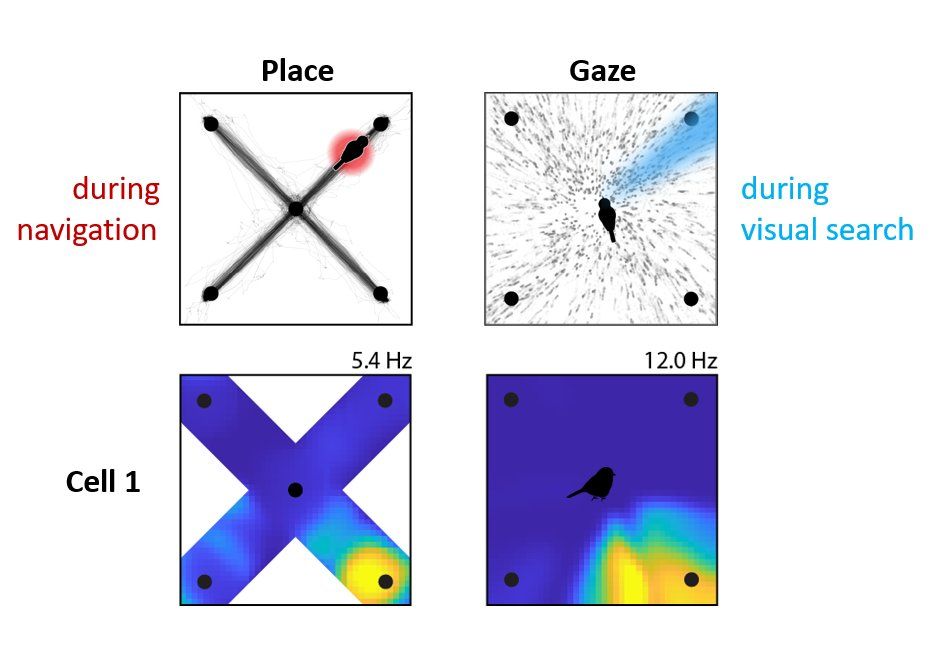
When a chickadee looks at a distant location, the same place cells activate as if it were actually there 👁️
The hippocampus encodes where the bird is looking, AND what it expects to see next -- enabling spatial reasoning from afar
bit.ly/3HvWSum
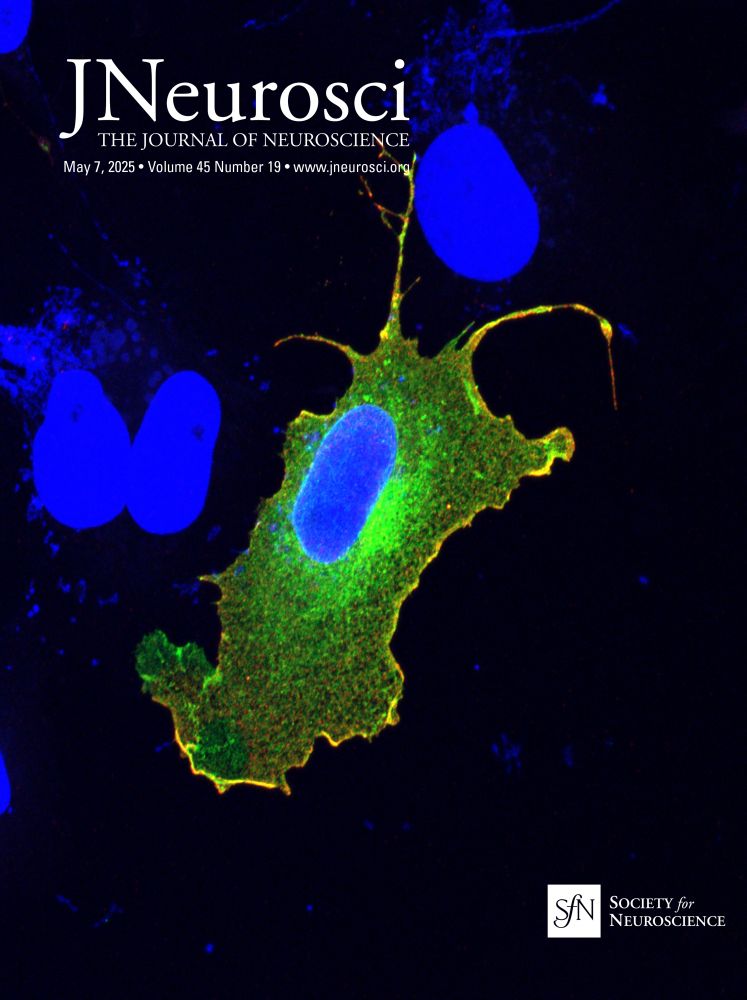
By @callimcflurry.bsky.social
www.thetransmitter.org/vision/cepha...
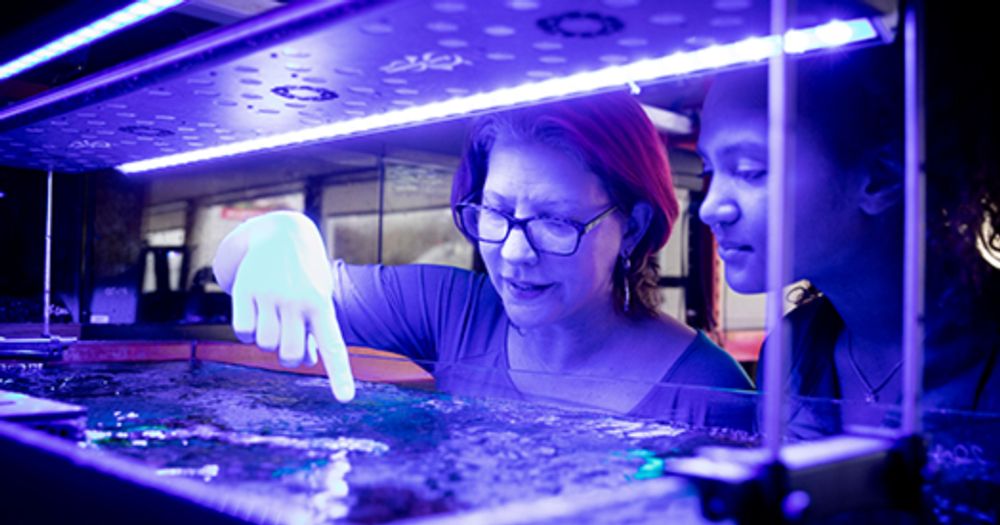
By @callimcflurry.bsky.social
www.thetransmitter.org/vision/cepha...
w/co-first @codydong.bsky.social , @marlietandoc.bsky.social & @annaschapiro.bsky.social osf.io/yuxb6_v1
w/co-first @codydong.bsky.social , @marlietandoc.bsky.social & @annaschapiro.bsky.social osf.io/yuxb6_v1
we've found that visual cortex, even when just viewing natural scenes, predicts *higher-level* visual features
The aligns with developments in ML, but challenges some assumptions about early sensory cortex
www.biorxiv.org/content/10.1...

we've found that visual cortex, even when just viewing natural scenes, predicts *higher-level* visual features
The aligns with developments in ML, but challenges some assumptions about early sensory cortex
www.biorxiv.org/content/10.1...
Curiosity-driven research is essential, even when we're not certain exactly what application it might have down the line. The two examples Jules highlights show how investing in basic research now has huge payout later.
This week, @joulesriley.bsky.social shares how years of curiosity-driven research led to two of the biggest clinical breakthroughs of the modern era: pennneuroknow.com/2025/05/20/b...
#neuroskyence #PsychSciSky #SciComm 🧪

Curiosity-driven research is essential, even when we're not certain exactly what application it might have down the line. The two examples Jules highlights show how investing in basic research now has huge payout later.

